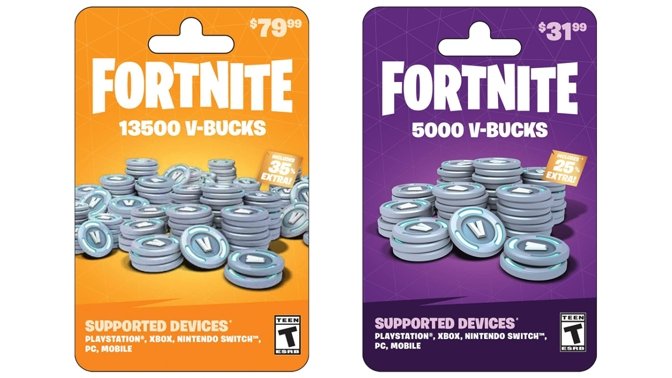Apple provides written witness testimony ahead of Epic trial
Apple has filed official written testimonies from its seven expert witnesses ahead of the Apple v. Epic Games bench trial on May 3.

Apple provides written expert witness testimonies to the court
Epic hopes to convince the court of Apple's dominance and abuse of power within its own ecosystem. If Epic succeeds, Apple may be required to open up the iPhone to alternate app stores, external payment methods, or change how the App Store functions fundamentally on its platforms.
Apple's defense against Epic's monopoly claims will include proving the existence of a diverse marketplace filled with customer choice. The witnesses vary between economics professors, legal representatives, and marketing experts.
The witnesses include:
MacRumors spotted the court documents on Tuesday along with interesting snippets of commentary from the witnesses. The 256-page document can be found there for further examination.
University of Pennsylvania Professor in Operations, Information, and Decisions Lorin Hitt calculated Apple's digital game transaction market share. Her argument is that Apple doesn't have a monopoly and points out Apple's fees are the same as other game platforms like Sony or Microsoft.
"Apple's share of the digital game transaction market lies between 23.3% and 37.5%," says Hitt. "In light of my conservative approach, these market share estimates, especially at the high end, are likely to overstate Apple's true market share and are, in any event, inconsistent with Apple having substantial market power. The entry of new game transaction platforms is also inconsistent with Apple having market power."
University of Michigan Professor of Economics Dean Francine Lafontaine shares Apple's position that Safari is a viable alternative to the App Store for paying for game items. Developers can't say that alternate purchase options are available but can make customers aware outside of the app.

Epic could circumvent Apple's 30% fee using physical cards for sale elsewhere
"Even the rare consumer who has access to only an iOS device has a readily available game transaction alternative to the App Store--the Safari browser," argues Lafontaine. "For example, any Fortnite player can use Safari (or Chrome) to purchase Fortnite's in-game currency, 'V-Bucks,' a transaction that generates no commission for Apple."
Similar methods have been employed by Netflix, Amazon, and Spotify. Epic has even used this method before, offering V-Bucks via cards sold at physical retailers or Amazon.
Johns Hopkins University Information Security Institute technical director Aviel Rubin says that third-party app stores would decrease iOS security, safety, and trustworthiness. Epic argues that Apple's App Store isn't as safe and secure as Apple lets on, which is a view shared by other developers.
Apple has a long battle ahead of them when the first hearing is held on May 3. Besides these expert witnesses, Apple will produce Tim Cook and Eddy Cue as witnesses. Epic has even asked that former iOS software chief Scott Forstall appear.
Stay on top of all Apple news right from your HomePod. Say, "Hey, Siri, play AppleInsider," and you'll get the latest AppleInsider Podcast. Or ask your HomePod mini for "AppleInsider Daily" instead and you'll hear a fast update direct from our news team. And, if you're interested in Apple-centric home automation, say "Hey, Siri, play HomeKit Insider," and you'll be listening to our newest specialized podcast in moments.

Apple provides written expert witness testimonies to the court
Epic hopes to convince the court of Apple's dominance and abuse of power within its own ecosystem. If Epic succeeds, Apple may be required to open up the iPhone to alternate app stores, external payment methods, or change how the App Store functions fundamentally on its platforms.
Apple's defense against Epic's monopoly claims will include proving the existence of a diverse marketplace filled with customer choice. The witnesses vary between economics professors, legal representatives, and marketing experts.
The witnesses include:
- Lorin M. Hitt, Ph.D
- Francine Lafontaine, Ph.D
- Richard Schmalensee, Ph.D
- Daniel L. Rubinfeld
- Dominique Hanssens, Ph.D
- Aviel D. Rubin, Ph.D
- James E. Malackowski
MacRumors spotted the court documents on Tuesday along with interesting snippets of commentary from the witnesses. The 256-page document can be found there for further examination.
University of Pennsylvania Professor in Operations, Information, and Decisions Lorin Hitt calculated Apple's digital game transaction market share. Her argument is that Apple doesn't have a monopoly and points out Apple's fees are the same as other game platforms like Sony or Microsoft.
"Apple's share of the digital game transaction market lies between 23.3% and 37.5%," says Hitt. "In light of my conservative approach, these market share estimates, especially at the high end, are likely to overstate Apple's true market share and are, in any event, inconsistent with Apple having substantial market power. The entry of new game transaction platforms is also inconsistent with Apple having market power."
University of Michigan Professor of Economics Dean Francine Lafontaine shares Apple's position that Safari is a viable alternative to the App Store for paying for game items. Developers can't say that alternate purchase options are available but can make customers aware outside of the app.

Epic could circumvent Apple's 30% fee using physical cards for sale elsewhere
"Even the rare consumer who has access to only an iOS device has a readily available game transaction alternative to the App Store--the Safari browser," argues Lafontaine. "For example, any Fortnite player can use Safari (or Chrome) to purchase Fortnite's in-game currency, 'V-Bucks,' a transaction that generates no commission for Apple."
Similar methods have been employed by Netflix, Amazon, and Spotify. Epic has even used this method before, offering V-Bucks via cards sold at physical retailers or Amazon.
Johns Hopkins University Information Security Institute technical director Aviel Rubin says that third-party app stores would decrease iOS security, safety, and trustworthiness. Epic argues that Apple's App Store isn't as safe and secure as Apple lets on, which is a view shared by other developers.
Apple has a long battle ahead of them when the first hearing is held on May 3. Besides these expert witnesses, Apple will produce Tim Cook and Eddy Cue as witnesses. Epic has even asked that former iOS software chief Scott Forstall appear.
Stay on top of all Apple news right from your HomePod. Say, "Hey, Siri, play AppleInsider," and you'll get the latest AppleInsider Podcast. Or ask your HomePod mini for "AppleInsider Daily" instead and you'll hear a fast update direct from our news team. And, if you're interested in Apple-centric home automation, say "Hey, Siri, play HomeKit Insider," and you'll be listening to our newest specialized podcast in moments.

Comments
I just don't see Epic generating much revenue these days. Fortnite still generates revenue, but it's certainly down from its peak. They're spending quite a bit giving away weekly games trying to compete with Valve/Steam. So I do just wonder if the Epic investors (each of whom would seem to have something to gain by an Apple loss) are using the company as a front for this lawsuit.
But really, this case is certainly holding my interest.
Full disclosure, I’m not on Epic’s side on this. I think both sides are wrong, but I feel Epic is more wrong in their position.
Whether Epic is actually profitable is open to question. They continue to require funding from VCs despite having made over $3B in revenue last year. Their user numbers are way up lately, because they are giving away billions in free games right now, but revenues appear to be flat — suggesting, alonside the need for funding, that they are presently in negative income territory.
https://clutchpoints.com/epic-games-store-gained-millions-users-2020-revenues-stayed-flat/
Epic themselves confirmed this to be true when they ran adverts urging iOS users to play Fortnite on other platforms. They didn't really believe there was a barrier themselves.